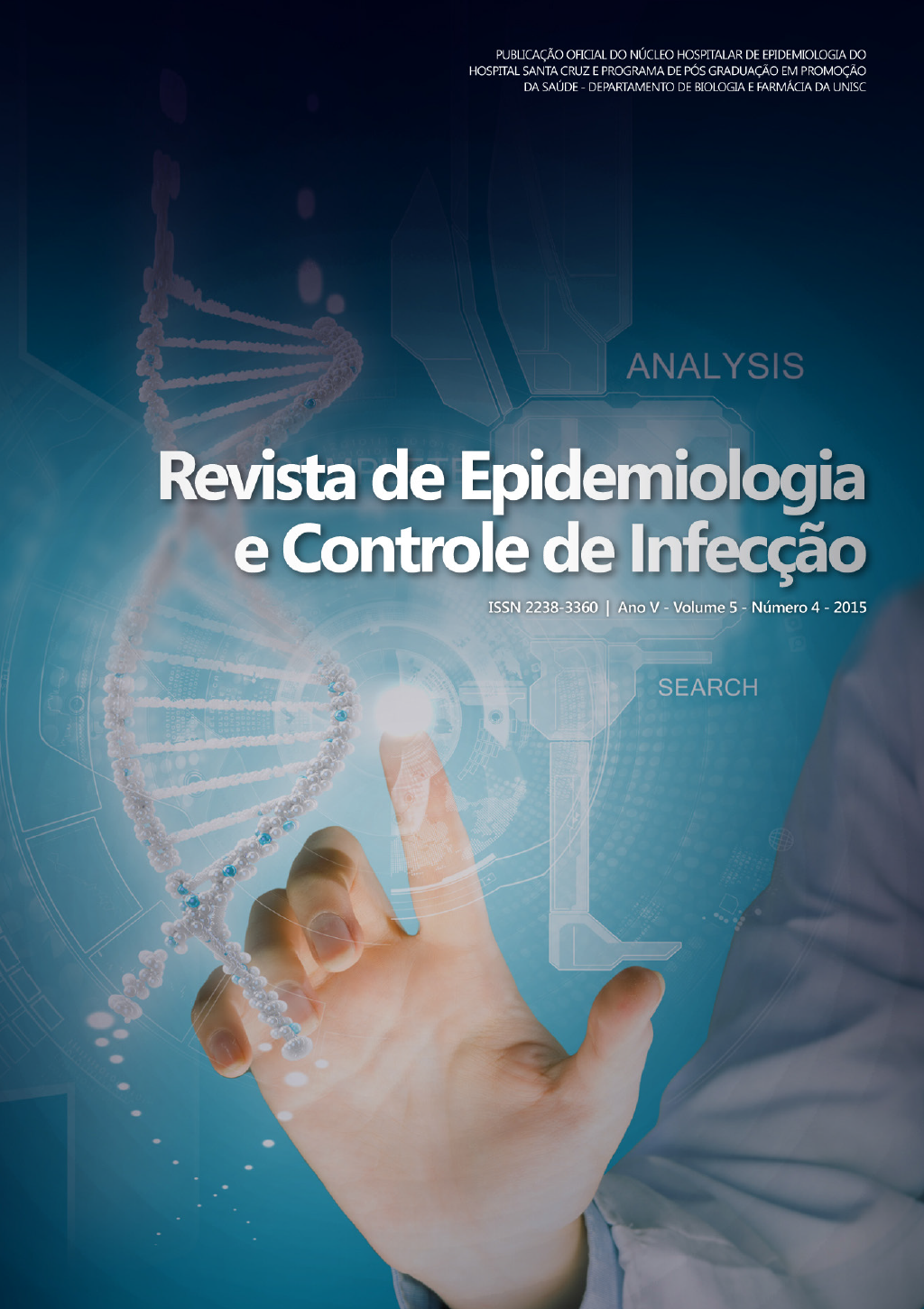Effectiveness of alcohol gelin stethoscopes disinfection contaminated with methicillinresistant Staphylococcus aureus
DOI:
https://doi.org/10.17058/reci.v5i4.6059Abstract
Background and Objectives: Although widely used, little attention has been given to basic-care in handling and disinfection of stethoscopes. Methicillin-resistant Staphylococcus aureus is frequently found and a major risk for hospitalized patients. Alcohol gel contains properties admittedly effective to exterminate germs that are frequently involved in infections. This study aims to verify the effectiveness of alcohol gel in stethoscopes disinfection contaminated with MRSA used by healthcare professionals of a University Hospital in Rio de Janeiro State. Methods: Health care professionals were selected randomly from August to November 2012, and collected samples with sterile swab of 105 stethoscopes before and after cleaning with alcohol gel 70% and performed cultures and bacterial identification. Results: Bacterial contamination was present in 87 (82.85%) of the analyzed stethoscopes. Gram positive bacteria were identified in 76 (72.38%). S. aureus was present in 7.61% of stethoscopes and MRSA in 87.5% of them. After using the alcohol gel, there was a reduction of 71,44% of the general bacterial contamination and MRSA elimination of 100% of the analyzed stethoscopes. Conclusion: One should improve care in cleaning of stethoscopes due to the risk of carrying pathogenic bacteria involved in hospital infections. The alcohol gel showed to be adequate for disinfection of stethoscopes contaminated with MRSA. KEYWORDS: Stethoscopes. Contamination. Ethanol. Disinfection. Methicillinresistant Staphylococcus aureus.Downloads
Downloads
Published
How to Cite
Issue
Section
License
The author must state that the paper is original (has not been published previously), not infringing any copyright or other ownership right involving third parties. Once the paper is submitted, the Journal reserves the right to make normative changes, such as spelling and grammar, in order to maintain the language standard, but respecting the author’s style. The published papers become ownership of RECI, considering that all the opinions expressed by the authors are their responsibility. Because we are an open access journal, we allow free use of articles in educational and scientific applications provided the source is cited under the Creative Commons CC-BY license.


